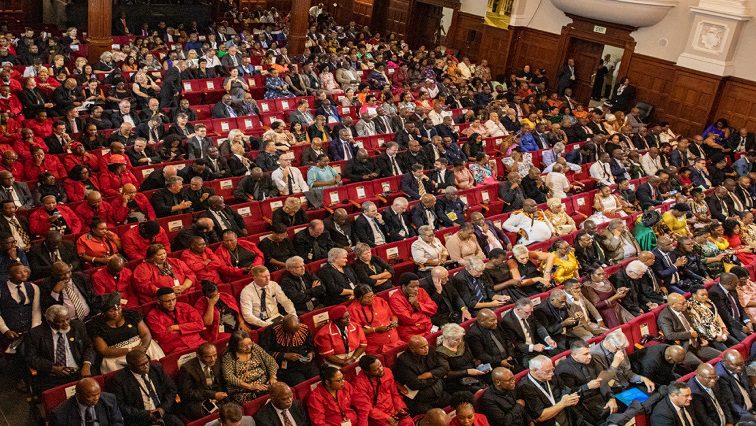A number of South Africa’s municipalities are run by coalitions but many of these coalition arrangements have led to the disruption of basic service delivery, impacting the lives and livelihoods of ordinary South Africans.
As things currently stand, there is no legislation that gives directives on how coalition governments should be run, resulting in some coalition agreements amongst political parties collapsing.
Lawmakers will now embark on a tour in Europe to study how some countries have managed to make coalition governments work.
Our SABC News team took to the streets of Johannesburg and found out what ordinary South Africans feel. Are South Africans ready to be led by a coalition government post the 2024 national elections?
“We have no choice but to opt for a coalition government because South Africa is in shambles. The party that we had hoped would help us is doing nothing for us, we are starting to even think that apartheid was better,” explains one citizen.
Another one adds, “There is no change, a coalition government would be good for us, a coalition government would listen to us and put the needs of the people first, we’re really tired.”
Some citizens are eager to see an end to South Africa’s dominant-party system and believe that coalition politics is the way to go. Whilst others believe that the country is far from being led by a coalition government.
“We as South Africans need to ask ourselves if we are ready for a coalition government, two different views, two different opinions, even if we are ready, are we really ready to be served by a coalition government?”
A resident says, “Coalitions are not a bad thing, as long as the parties for a coalition government come up with a condition that can help the nation,”
The City of Tshwane is in limbo following the recent resignation of its mayor, Randall Williams. The City came under fire for incurring an audit opinion from the Auditor General for the 2021/2022 financial year.
Dr. Mpho Phalatse was ousted as Johannesburg mayor last month and replaced by Thapelo Amad from a minority party.
“In a country like this one where you have political infighting, it’s not surprising that we see all this trouble in coalition governments actually we cannot expect this to last,” a Resident said.
“Honestly, I don’t think they would work, judging by what’s happening in the metros, it feels like they don’t care about what’s happening. They are only just fighting, and they just want to eat our money,” another Resident said.
“I think it will take time because these parties stand for completely different things, the EFF is radical and the DA is coming from a different perspective with blurred racial lines and the ANC also trying to push transformation so it’s a bit early to talk about coalitions,” a resident explains.
‘Regulate function of coalition government’
Meanwhile, the Chairperson of the Parliamentary Committee on Cooperative Governance and Traditional Affairs says there is an urgent need to regulate the functioning of coalition governments ahead of the 2024 general elections.
He says the phenomenon has not received much attention from lawmakers in the past due to the fact that until recently one political party, the ANC was able to win majority support in most municipalities across the country.
“A basic of coalitions would be to say a party with a majority though below fifty percent plus one should be given an opportunity to say form a government it should not be everybody even a party with two members within council they can initiate a coalition as long as they can bring everybody because there you are leaving out what the voters actually expressed but that thing is not legislated for now so hence we are undergoing this study tour, we will be looking at all angles in terms of developing a framework that guides coalitions,” says Fikile Xasa, Chair of Parliamentary Committee on CoGTA.
With next year’s national and provincial elections imminent, which many predict to be hotly contested, the need to regulate coalition governments grows increasingly urgent.

